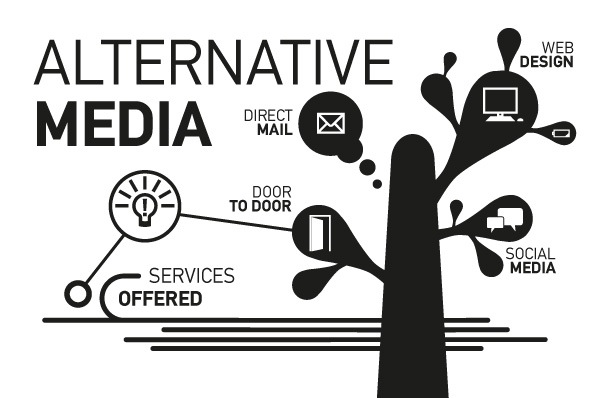Determining whether or not a news source is alternative isn't very hard. The answer can be found by asking a series of questions that I thought of: Is it corporate owned? What is its content, meaning is it news that is repressed or misreported news from mainstream media? How is it produced and distributed? And what is the purpose? Is it seeking some kind of political or social change? After asking these questions, you can breakdown the facts of a news source. Also, one key difference between mainstream & alternative media is that mainstream is profit-oriented. Alternative media houses aren't as a means to avoid conflicts of interest in their objectives. They want to make sure they get their point across more than trying to receive something materialistic out of it. However, though it may seem like alternative media is trying to do good things, they still have their pros and they have their cons.
One of the great things about the alternative media sources is that they can have several perspectives of a story. Having multiple perspectives gives you different outlooks on the same situation, giving you views that mainstream media may not show. Another good thing is that censorship is weaker, which allows avenues that mainstream media may not have to offer more information. Lastly, reporting of the information may be faster. You think about the big companies like PBS, TBS, CBS, and NBC. These companies are limited on what they can display and sometimes it takes long to get the information and release depending the process it has to go through, from the bottom all the way up to the head of the company. So this offers a clear advantage for alternative. However, though there are a few great positives, we have to still meticulously pay attention to the negatives of alternative media.
After talking about the advantage alternative media had from having weaker censorship, it still can be awful for the audience because of its lack of censorship. Sometimes, depending on the objective of the news source, the information being produced can be horrendous. It may have a bad effect on who may come to read the source and it can be very inappropriate, especially if younger people are a percentage of the viewers who read the sources. After this, even though it is not as important, the production quality can be very poor compared to the quality of mainstream media houses. Going back to the news source South Front, companies similar to them where they continue to run their organization only off of donations from the supporters can quickly become a detrimental problem. Taking into consideration if the organization didn't have enough supporters, it would make everything worse. This condition follows into the con dealing with fewer sources. Since some of these media houses might just be starting or either are small, they are limited in the connections they have to use to gain the information needed.. Ultimately, this follows into the negative where there are fewer filters. Having fewer sources is what causes the problem of fewer filters, which results in "fake news." Also, looking at these sources with a grain of salt, we have to remind ourselves that some of these news sources have more personal bias than bigger mainstream media companies. In the end, we have to always look back at those questions not only to identify a media source to see if its alternative but also to dissect the source to find the truth.

No comments:
Post a Comment